Achieve Energy Independence with Starks Solar Panels
The energy landscape is changing. Prices are rising, and the reliability of traditional energy suppliers is becoming increasingly uncertain. But what if you could take control of your energy future? With solar panels, you can generate your own electricity and reduce your reliance on energy suppliers. This means more stability, more savings, and more peace of mind.
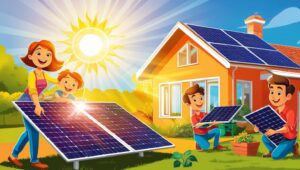
The Problem with Traditional Energy Suppliers
Price Volatility:Energy suppliers prices are subject to constant fluctuations due to global events, market demand, and government regulations. This makes it difficult to budget for your electricity bills and can lead to unexpected financial strain. You can keep up to date with energy prices at the Energy Saving Trust website.
Supply Disruptions: Power outages and supply disruptions can occur due to extreme weather events, infrastructure failures, or even planned maintenance. These disruptions can be inconvenient and costly, especially for businesses and homeowners who rely on a continuous power supply.
Environmental Impact: Traditional energy generation often relies on fossil fuels, contributing to climate change and air pollution. This has a significant impact on the environment and our overall health. The UK government’s Department for Business, Energy & Industrial Strategy provides information on the environmental impact of different energy sources.
How Solar Panels Offer a Solution
Solar panels offer a clean, reliable, and cost-effective alternative to traditional energy suppliers sources. By installing solar panels on your property, you can:
Generate Your Own Electricity:Solar panels convert sunlight into electricity, allowing you to power your home or business directly from the sun. This reduces your dependence on the grid and gives you greater control over your energy supply.
Stabilize Your Energy Costs: While the initial investment in solar panels may seem significant, it pays off in the long run. Once installed, solar panels require minimal maintenance and provide free electricity for decades. This helps you avoid rising energy prices and protects you from market volatility.
Increase Energy Independence: With solar panels, you are no longer at the mercy of energy suppliers. You have a reliable source of power that you can count on, even during grid outages or supply disruptions. This gives you greater peace of mind and ensures that your home or business can continue to operate smoothly.
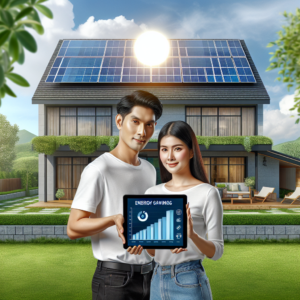
Benefits Beyond Energy Independence
In addition to reducing your reliance on energy suppliers, solar panels offer a range of other benefits:
Environmental Responsibility: Solar energy is a clean and renewable energy source that produces no harmful emissions. By switching to solar, you can reduce your carbon footprint and contribute to a healthier planet. Learn more about the environmental impact of going solar.
Increased Property Value: Studies have shown that homes with solar panels sell faster and for a higher price than comparable homes without solar. This makes solar panels a smart investment that can increase the value of your property. Discover how solar panels increase property value.
Energy Security: Solar panels provide a secure and decentralized source of energy. This is particularly important in areas prone to natural disasters or political instability, where the grid may be vulnerable to disruption.
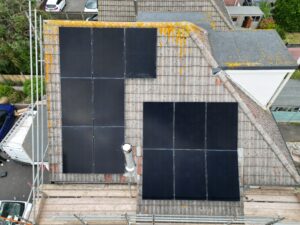
Solar Panels in Action: Real-World Examples
Residential Solar: Imagine a family in Hampshire who installs solar panels on their roof. They no longer have to worry about rising electricity bills or unexpected power outages. They are generating their own clean energy, saving money, and reducing their environmental impact.
Commercial Solar: A business in Dorset installs a large solar array on their property. This allows them to significantly reduce their operating costs and improve their sustainability profile. They are also able to use the solar panels as a marketing tool, attracting environmentally conscious customers.
Community Solar: A community in Wiltshire comes together to invest in a shared solar farm. This provides clean and affordable energy to all members of the community, regardless of whether they have solar panels on their own property. The Renewable Energy Hub provides information on community solar projects in the UK.
Taking the First Step Towards Energy Independence
If you’re interested in reducing your reliance on energy suppliers and taking control of your energy future, solar panels are a great option. Here are some steps you can take to get started:
Assess Your Energy Needs: Evaluate your current energy consumption and identify areas where you can reduce your usage. This will help you determine the size and type of solar panel system you need.
Get a Professional Consultation: Contact a reputable solar panel installer like Starks Solar for a free consultation. We can assess your property, discuss your energy goals, and provide you with a customized solar solution.
Explore Financing Options: There are a variety of financing options available to help you make the switch to solar. We can help you explore these options and find the best solution for your budget.
Make the Switch to Solar: Once you’ve made the decision to go solar, we will handle the entire installation process, from permitting to final inspection. You can relax and enjoy the benefits of clean, reliable, and affordable energy.
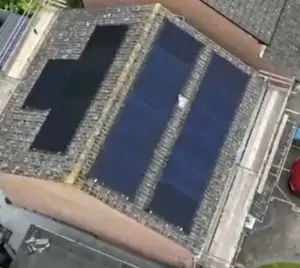
The Future of Energy is Decentralized
The traditional model of centralized energy suppliers generation is becoming increasingly outdated. Solar panels represent a shift towards a more decentralized and sustainable energy future. By generating your own electricity, you can become part of this movement and contribute to a cleaner, more resilient energy grid.
Frequently Asked Questions about Solar Panels
How much do solar panels cost? The cost of solar panels varies depending on the size of your system, the type of panels you choose, and the complexity of the installation. However, with falling panel prices and government incentives, solar is becoming more affordable than ever.
How long do solar panels last? Solar panels are designed to last for 25-30 years or more with minimal maintenance. This means you can enjoy decades of free electricity and significant savings on your energy bills.
Do solar panels work in cloudy weather? Yes, solar panels can still generate electricity in cloudy weather, although their output will be reduced. However, even on cloudy days, you will still be generating some of your own power and reducing your reliance on the grid.
What happens to excess solar energy? If your solar panels generate more electricity than you are using, the excess energy can be fed back into the grid. In some cases, you may even be able to earn credits from your energy supplier for this excess energy.
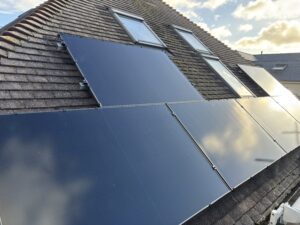
Starks Solar: Your Partner in Solar Energy
Starks Solar is a leading provider of solar panel installations in Hampshire, Dorset, and Wiltshire. We are committed to helping homeowners and businesses make the switch to clean, affordable, and reliable solar energy.
Our team of experienced installers are dedicated to providing high-quality workmanship and exceptional customer service. We use only the highest quality solar panels and components to ensure that your system performs optimally for years to come.
Contact us today on 01425 460419 or visit our website at https://starks.solar to learn more about how solar panels can reduce your reliance on energy suppliers and transform your energy future.
Expanding on the Topic:
Let’s delve deeper into some of the key aspects of reducing your reliance on energy suppliers with solar panels:
1. Understanding Your Energy Consumption
Before you make the switch to solar, it’s important to understand your energy consumption patterns. This will help you determine the size of the solar panel system you need and ensure that you are generating enough electricity to meet your needs.
Monitor Your Electricity Bills: Review your electricity suppliers bills from the past year to get an idea of your average monthly consumption.
Identify Energy Hogs: Identify the appliances and devices in your home or business that consume the most energy. This could include things like heating and cooling systems, refrigerators, and electronics.
Consider Your Lifestyle: Think about your daily routines and how they impact your energy usage. Do you work from home? Do you have a large family? Do you use a lot of hot water?
By understanding your energy consumption, you can make informed decisions about your solar panel installation and maximize your return on investment.
2. Choosing the Right Solar Panel System
There are a variety of solar panel systems available, each with its own advantages and disadvantages. It’s important to choose a system that is right for your property, your energy needs, and your budget.
Panel Type:There are two main types of solar panels: monocrystalline and polycrystalline. Monocrystalline panels are more efficient but also more expensive.Polycrystalline panels are less efficient but more affordable.
System Size: The size of your solar panel system will depend on your energy consumption and the amount of roof space you have available.
Inverter Type: The inverter is a crucial component of your solar panel system. It converts the direct current (DC) electricity generated by the panels into alternating current (AC) electricity that can be used in your homeor business. There are different types of inverters available, each with its own efficiency and cost.
Battery Storage: Consider adding battery storage to your solar panel system. This allows you to store excess solar energy for use at night or during power outages. Learn more about battery storage installation.
Our team at Starks Solar can help you choose the right solar panel system for your specific needs and ensure that you get the most out of your investment.
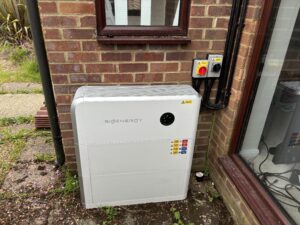
3. Maximizing Your Solar Energy Production
Once you have installed solar panels, there are a few things you can do to maximize your energy production and reduce your reliance on the grid:
Optimize Panel Placement: Ensure that your solar panels are placed in a location that receives maximum sunlight throughout the day. This may involve trimming trees or adjusting the angle of your roof.
Keep Your Panels Clean: Dirt and debris can reduce the efficiency of your solar panels. Clean your panels regularly to ensure they are operating at peak performance.
Monitor Your System: Use a monitoring system to track your solar energy production and identify any potential issues. This will help you ensure that your system is operating efficiently and generating the maximum amount of electricity.
4. Embracing Energy Efficiency
While solar panels can significantly reduce your reliance on energy suppliers, it’s also important to embrace energy efficiency measures in your home or business. This will help you further reduce your energy consumption and maximize your savings.
Upgrade Your Appliances: Replace old, inefficient appliances with newer, energy-efficient models.
Improve Insulation: Proper insulation can help you reduce your heating and cooling costs.
Use Energy-Efficient Lighting: Switch to LED lighting, which uses significantly less energy than traditional incandescent bulbs.
Reduce Phantom Loads: Unplug electronics and appliances when not in use to avoid phantom loads, which can consume energy even when devices are turned off.
By combining solar panels with energy efficiency measures, you can create a truly sustainable and self-sufficient energy system for your home or business.
5. The Role of Government Incentives
The UK government offers a number of incentives to encourage the adoption of solar energy. These incentives can help reduce the upfront cost of solar panel installation and make it more accessible to homeowners and businesses.
Smart Export Guarantee (SEG): The SEG allows you to earn money by exporting excess solar energy back to the grid.
Reduced VAT Rate: A reduced VAT rate of 0% applies to solar panel installations for residential properties.
Local Incentives: Some local councils offer additional incentives for solar panel installations, such as grants or reduced planning fees.
It’s important to stay informed about the latest government incentives and take advantage of any programs that may be available to you.
6. The Future of Solar Energy
Solar energy technology is constantly evolving, with new innovations and advancements emerging all the time. This means that solar panels are becoming more efficient, more affordable, and more accessible than ever before.
Building-Integrated Photovoltaics (BIPV): BIPV integrates solar panels directly into the building envelope, such as roofs, walls, and windows. This creates a seamless and aesthetically pleasing solar solution.
Solar Roof Tiles: Solar roof tiles are designed to look like traditional roof tiles but incorporate solar cells to generate electricity.
Floating Solar Farms: Floating solar farms are installed on bodies of water, such as lakes or reservoirs. This can help maximize land use and reduce water evaporation.
As solar technology continues to advance, we can expect to see even greater adoption of solar energy and a further reduction in our reliance on traditional energy suppliers.
7. Join the Solar Revolution
The transition to a cleaner, more sustainable energy future is underway. By installing solar panels, you can become part of this movement and take control of your energy destiny.
Reduce your reliance on energy suppliers.
Stabilize your energy costs.
Reduce your carbon footprint.
Increase your property value.
Enjoy energy independence and peace of mind.
Contact Starks Solar today to learn more about how solar panels can benefit you and your property. We are your trusted partner in solar energy, providing expert advice, high-quality installations, and exceptional customer service.
Call us on 01425 460419 or visit our website at https://starks.solar to get started.
Customer Feedback on Starks Solar Panel Installations